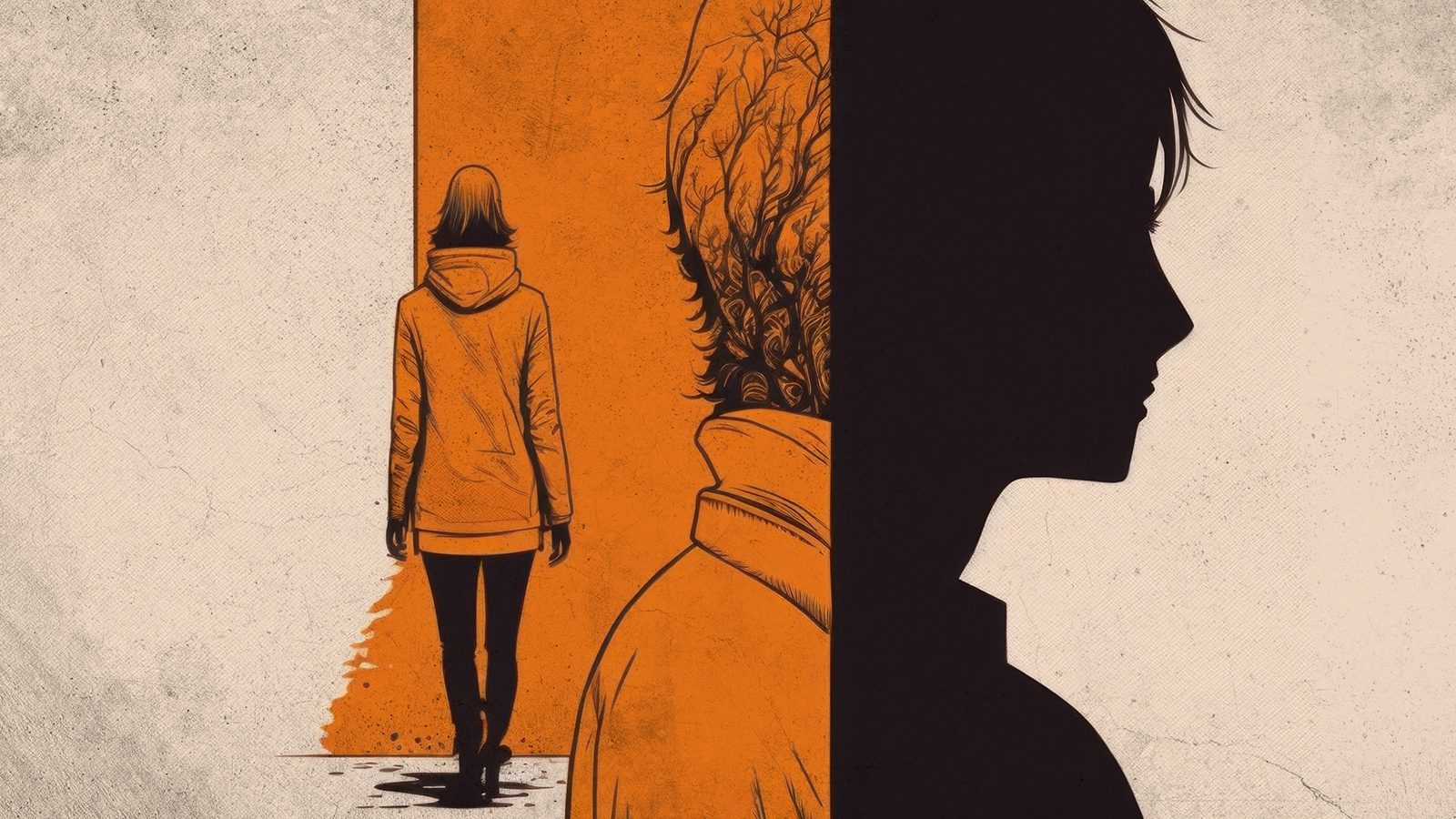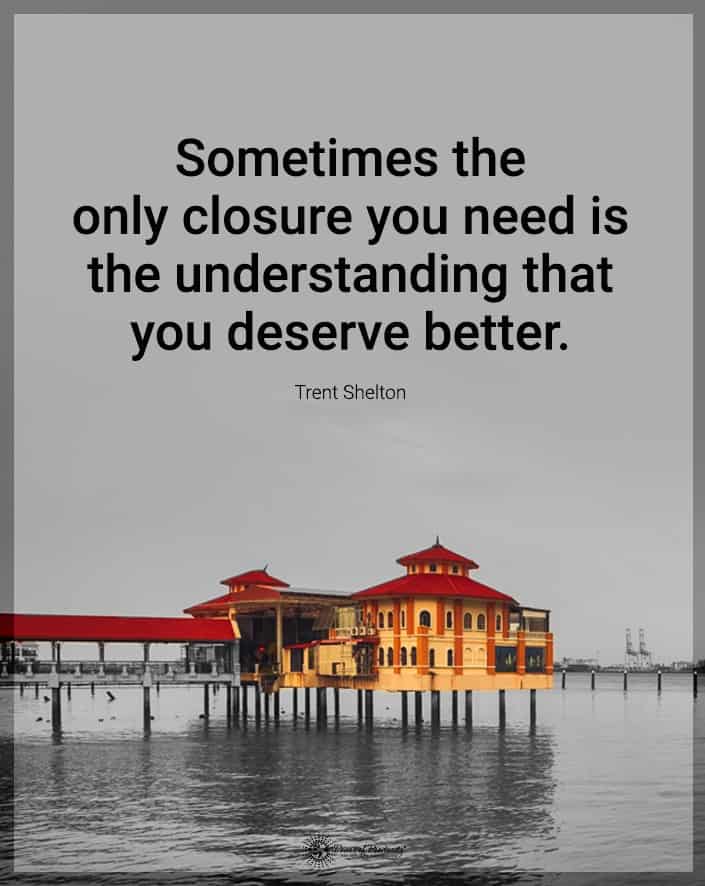Are you ready to heal your heart?
In the haunting time following the storm of a breakup, we often find ourselves stranded on the isles of our thoughts and emotions. As we struggle through the waves of pain, we ask a nagging question: Is it time to move on? The end of a relationship can cast us into the depths of uncertainty and sorrow, yet within this abyss lies an opportunity for growth, rediscovery, and, ultimately, healing. Understanding when and how to embark on this journey towards emotional recovery is pivotal, not just for our mental well-being, but for the promise of future, healthier relationships.
In this article, we will explore fifteen discernible signs that suggest it might be time to turn the page and step into a new chapter of your life after a breakup.
But recognizing the need to move on is only the first step in a more complex process. We will also look into an emotional recovery guide after losing a relationship.
Surviving the aftermath of a relationship’s demise is no easy feat. But with the right tools, resources, and support, the path to healing becomes viable and a journey of self-discovery and empowerment.
So, let’s embark on this journey together, exploring the signs that herald a need for change and uncovering how we can reclaim our emotional well-being after a breakup.
Recognizing the Fifteen Signs: When It’s Time to Move On
The aftermath of a breakup can often be a labyrinth of emotions, where discerning whether to hold on or to let go becomes a complex dilemma. Identifying the signs that it’s time to move on is crucial in initiating the healing process and preventing prolonged heartbreak.
If you do not move past these behaviors, you will become mired in sadness – or even develop depression. Let’s explore some of these signs in detail.
1 – Move on if You Feel Emotional Stagnation
Emotional stagnation, or the persistent feeling of being stuck in your sorrow, clearly indicates that the past hinders your present. When memories of the relationship consistently overshadow your daily life and prospects, it becomes imperative to consider moving forward.
Dr. Elaine Ducharme, a clinical psychologist, emphasizes that being unable to find joy in activities that once brought happiness is a tangible sign of emotional stagnation. Recognizing this and gradually steering towards activities and thoughts that propel you forward is essential.
2 – Constant Sadness and Depression
It’s natural to experience sadness after a breakup. However, when sadness becomes a constant companion, it’s a red flag never to ignore. A 2021 article in Frontiers in Behavioral Neuroscience explains the link between prolonged post-breakup stress and the onset of depression.
Recognizing this continuous melancholy as a sign to move forward is vital to safeguarding your mental health and initiating the healing process.
3 – Move on to Break Away From Obsessive Thoughts and Actions
Obsessive thoughts about your ex-partner and the relationship can create a mental trap where moving forward seems unattainable. Engaging in actions, such as incessantly checking their social media or trying to find ways to bump into them, harms your emotional health and obstructs recovery.
Such obsessive rumination can lead to chronic stress and anxiety. Further, developing obsessive thoughts emphasizes the importance of recognizing and addressing this sign.
4 – Loss of Self-Identity
When the relationship becomes the sole definer of your identity, and its termination leaves a void where your sense of self once was, it’s a clear indicator that moving forward is imperative.
Re-establishing your individuality and rediscovering personal interests and values becomes paramount in the healing process.
5 – Compromising Personal Values
Suppose you find yourself engaging in behaviors or adopting beliefs that starkly contrast your intrinsic values to maintain a semblance of connection with your ex-partner. In that case, it’s a sign that the past is dictating your present actions detrimentally.
6 – Move on if You Neglect Other Relationships
Isolation or the neglect of friendships and familial relationships post-breakup, often stemming from a preoccupation with the past relationship, signals a need to reevaluate and prioritize your current social connections.
It is time to restore your neglected connections and reap the benefits of positive interactions.
7 – Physical Symptoms
When emotional pain manifests physically through sleep disturbances, appetite changes, or other health issues, it’s a tangible sign that the emotional turmoil needs addressing.
In this case, moving forward is essential for your whole well-being.
8 – Romanticizing the Past
Do you find yourself overlooking the relationship’s flaws and idealizing the past? That’s dangerous for your mental health.
At this point, it’s crucial to acknowledge this selective memory as a barrier to moving on and embracing reality.
9 – Move on if You Avoid New Connections
A persistent fear or reluctance to form new relationships or connections, stemming from the scars of the past relationship, indicates a need to heal. It is time to open yourself to new possibilities.
10 – Feeling Forced Happiness
Putting on a facade of happiness and contentment while internally grappling with pain and sorrow signifies that the emotional wound is only masked, not healed.
It’s time to move away from fake, toxic positivity and find genuine happiness again.
11 – Lack of Personal Growth
Suppose you perceive the past relationship’s shadows stifle your personal development and growth. In that case, it’s a sign that moving forward is necessary to reignite your evolution.
12 – Move on if You Harbor Persistent Anger
Holding onto anger or resentment towards your ex-partner without progressing towards forgiveness and acceptance can stop you from healing and moving on.
It is past time to release the angry, resentful feelings and bring back your peace of mind.
13 – Fantasizing about Reconciliation
Despite its conclusion, constantly harboring fantasies about reconciliation and rekindling the relationship indicates a reluctance to accept the present reality.
But the truth is that false hope might hold you back from even better things. So, if you hope for a new, healthier relationship, it’s time to let go of the fantasy.
14 – Ignoring Your Needs
Neglecting your emotional, physical, and mental health signals a need to shift focus towards self-care and recovery. In fact, prioritizing the past relationship can take over your well-being.
It is time to put yourself first again.
15 – Move on If You Cannot Envision a Future
If envisioning a future without your ex-partner becomes impossible, it’s a sign that the past exerts undue influence over your prospects and that moving forward is essential.
Recognizing these signs is not about hastening the healing process. Instead, it is about acknowledging the need to embark on the journey towards recovery and self-rediscovery. Eventually, it leads you toward forming healthier future relationships.
The Science Behind Breakups and Knowing It’s Time to Move On
The emotional landscape post-breakup can be a tumultuous ride. It often includes intense sadness, reflection, and, ultimately, healing. The science behind breakups and moving on provides insightful perspectives into why we feel the way we do after a relationship ends and how we can channel these emotions toward positive personal development.
Psychological and Physiological Effects of a Breakup
The end of a relationship can trigger a cascade of psychological and physiological responses. Psychologically, individuals may experience feelings of sadness, rejection, and anxiety. Physiologically, stress hormones like cortisol may spike, while feel-good neurotransmitters like serotonin may dip, impacting mood, sleep, and overall well-being. The emotional pain experienced during a breakup activates the same regions of the brain that inform physical pain, explaining why the end of a relationship can feel physically painful.
The Role of Acceptance in the Healing Process
Acceptance plays a pivotal role in the healing process post-breakup. The psychology community widely recognizes the Acceptance and Commitment Therapy (ACT) model. This therapy posits that accepting the pain and emotions associated with a breakup without judgment or resistance is crucial for emotional recovery.
Dr. Steven Hayes, a prominent psychologist and one of the founders of ACT, emphasizes that acceptance allows individuals to make healthy decisions based on values and goals, not pain and emotions.
In the context of moving on after a breakup, the ACT model can be beneficial in several ways:
- Acceptance: Allowing oneself to experience pain, sadness, and other emotions without judgment or resistance.
- Mindfulness: Staying present with one’s emotions without being overwhelmed or defined by them.
- Values Clarification: Identifying what is truly important for one’s well-being and future.
- Committed Action: Taking steps that align with one’s values, such as engaging in self-care, seeking support, and exploring new opportunities.
Don’t be afraid to talk with a counselor – they can guide you throughout your healing time.
Final Thoughts on the Signs It’s Time to Move On After a Breakup
In the weeks and months that follow a breakup, there lies a path that leads toward healing and self-discovery. Ultimately, you hope for a newfound sense of peace and well-being. While often punctuated with moments of pain and sorrow, the journey of moving on is also a gateway to embracing oneself, forging new connections, and stepping into a future unburdened by the shadows of the past.
As we recapitulate, moving on after a breakup involves:
- Recognizing the signs that indicate it’s time to let go.
- Understanding the psychological underpinnings of the emotions experienced.
- Taking pragmatic, structured steps towards healing and recovery.
From accepting and navigating through your emotions, seeking professional help, establishing a robust support system, focusing on self-care, to engaging in new activities and experiences, each step is a stride towards reclaiming your emotional well-being and personal identity.
As you move on after a breakup, may you find the strength to fight through the waves of emotions. Your path toward healing is uniquely yours. Still, it’s important not to allow yourself to stay mired in your sadness – recognize these fifteen signs that you must move on and rebuild your life.

















 Community
Community

